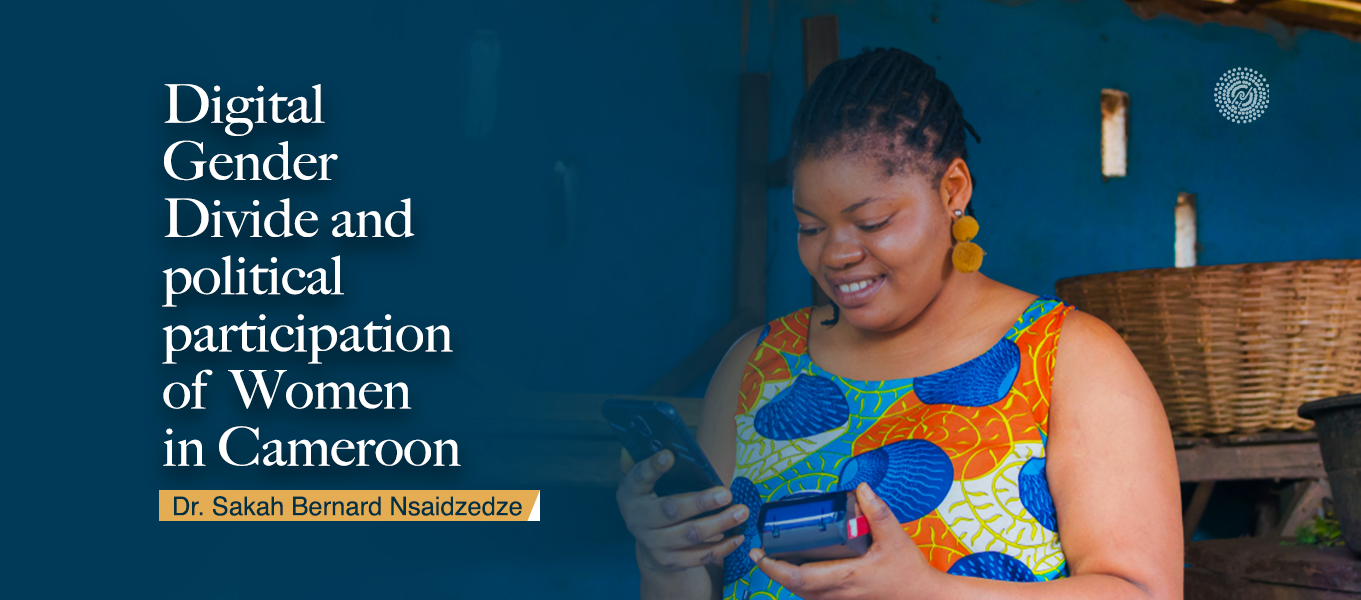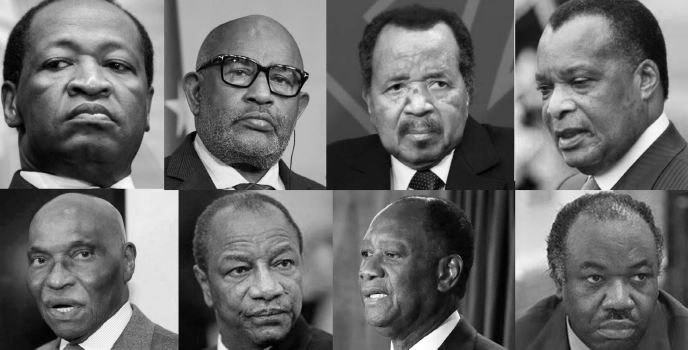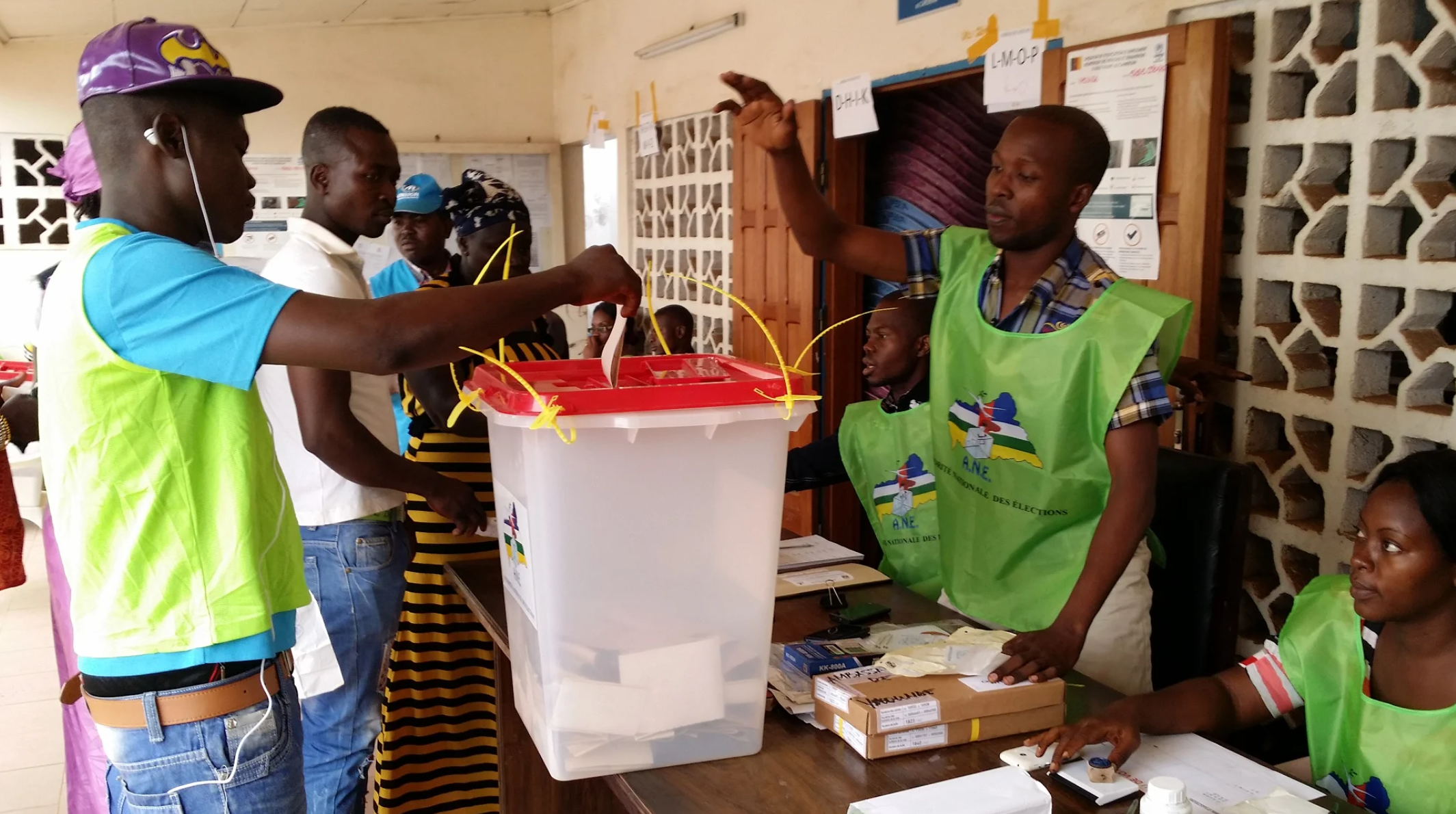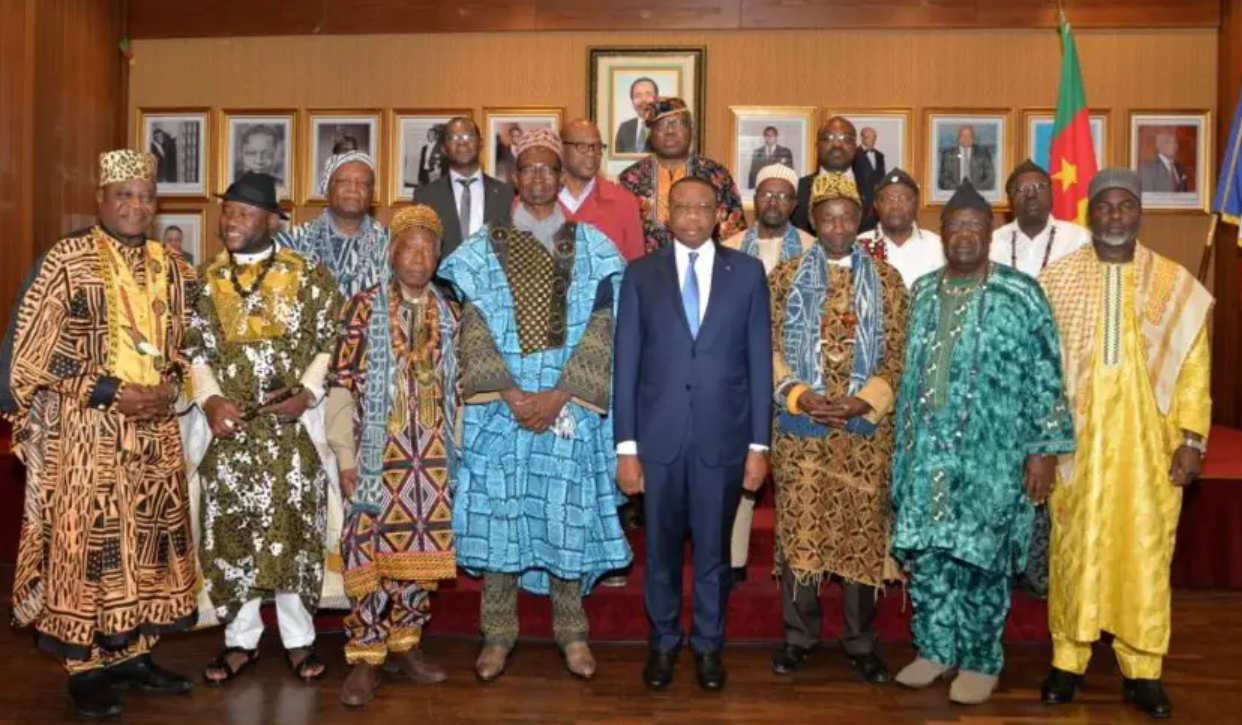Abstract
Digital technologies are increasingly being adopted across many countries including in Africa to boost political participation. However, while the government of Cameroon and some citizens are slowly embracing these technologies as well to enhance their activities, some studies have found that there persists a serious digital gender divide as more men than women are using ICTs especially social media to drive their political agendas. The Cameroon Digital Vision 2016-2020 as well as other ICTs related policies enshrined in the government vision 2035 are not effectively pursued. Hence, to boost effective implementation of various digital policies in Cameroon and political participation of women with the use of ICTs, this paper suggests the need for government to allocate a special package of about 10-15% of the national budget to accelerate training of women and girls in science, technology, engineering and mathematics (STEM), embark on more public private partnerships to empower women with digital skills for the digital economy as well as create an enabling legal and political environment for civil society actors to intensify digital rights sensitization campaigns for women and girls necessary for application in pursuing their political participation through online and offline spaces.
The digital revolution continues to transcend various spheres of life including a great influence over the participation of women and men in decision-making processes. According to Article 19 of the United Nations Declaration on Human Rights (UNDHR) adopted on the 10th of December 1948, everyone has the right to express themselves through any media. The Preamble of the 1996 Constitution of the Republic of Cameroon clearly provides for the rights and freedoms to expression, association and assembly in compliance with the law for all Cameroonians. More so, the 1990 freedom laws in Cameroon among other national and international instruments further stress on equal rights of citizens regardless of gender and social status vis-à-vis different levels of political participation.
Despite an increasing trend in exploring emerging digital opportunities as alternative tools towards enhancing political participation across Cameroon and beyond, a digital divide still persists with negative consequences on gender and political participation of women in high level decision-making processes in Cameroon. The use of social media in this case cannot be overstressed. According to the January 2019 HootSuite Digital Report, there are currently about 6.13 million internet users with about 25% penetration rate, and 3.60 million (14%) social media users in Cameroon. However, as the Cameroon Gender Policy for 2011-2020 noted, more men than women have access to ICTs and internet facilities in Cameroon and thus the need to clamour for more gender equality in accessing these services as a strategy to mitigate gender inequality and enable women’s meaningful participation in decision-making processes through E-governance
Why the urgent need to bridge the digital gender divide?
Studies have revealed that more men than women are exploiting ICTs to foster their digital rights and political participation in Cameroon. Currently, women only make up about 31% in parliament; less than 10% in top executive positions and about 25% in the judicial arm of government in Cameroon[i]. Regarding online political participation, men often dominate these digital spaces through which they influence policy reforms to their favour.[1] An example was the October 2018 presidential elections which witnessed a heightened social media presence of all the 9 male contesting candidates.
According to Mbayong, in more women and girls dominate digital spaces when it comes to social communication with family members and friends, entertainment, life-styles, among other leisure activities[ii]. This is unlike many men and boys who spend relatively more time in politics related issues, business, and nurturing social networks that can be useful for political support.[2] In order to bridge the digital gender divide and enhance women’s participation in political and decision making processes in Cameroon, several measures need to be considered as a matter of urgency.
Critical analysis of current Government policies
It is worth commending the on-going positive efforts driven by government and other stakeholders when it comes to fostering digital rights and strive towards enhancing more gender equal participation in decision-making processes in Cameroon. The various e-laws including the 2010 law on cybersecurity and cybercriminality, law on electronic communications and information technologies as well as the e-commerce law all elaborately commit to serving the interest of all Cameroonians irrespective of gender, social status, ethnicity, and religion[iii]. The Ministry of Post and Telecommunications alongside the National Agency for Information Communication and Technologies (NAICT/ANTIC) as well as the Telecommunications Regulatory Board are all responsible for, several government initiatives geared towards creating a vibrant digital economy for both women and girls and whose benefits and opportunities leave far reaching positive implications for women.
The National Gender Policy Document for 2011-2020 (2015:43) as well as the Digital Vision 2020 all acknowledge the prevailing general digital challenges in Cameroon especially women. The gender policy highlight the fact that more women than men still face barriers including language, digital illiteracy, limited time and limited finances to afford digital devices and services due to family responsibilities as well as their low propensity to learn. Among other observed reasons for persistence of the digital divide are the lmited genuine political will by the government to allocate sufficient funds to ensure effective implementation of the digital policy such as through investing in STEP programs for women and girls, misappropriation of funds meant for women’s digital literacy programs, and unfavourable legal and political environment to protect and promote digital rights of citizens especially women and girls. In countries like Kenya, Ghana and South Africa, women have been noted to have experienced increased political participation due to their digital empowerment.[3] It therefore becomes relevant to question whether Cameroon cannot draw inspiration from such African countries with good practices in the digital domain vis-à-vis political participation of women, improved democratization and e-governance.
Policy Recommendations to bridge the gender digital divide and enhance women’s political participation
The task to bridge digital gender divide to foster participation of women in political processes in Cameroon depends on multiple stakeholders. Some of the concrete initiatives to embark upon are worth highlighting here.
- It is imperative for the government to institute a special national budgetary allocation of say 10-15% to train women and girls in the domain of Science, Technology, Engineering and Mathematics (STEM). This can be designed to cover a period of one (1) to five (5) years targeting those in the rural/urban areas as well as the formal (school) and informal settings. Keen attention needs to be directed towards the use of different ICTs for political mobilisation, campaign, advocacy, consultation and engagement in online political debates.
- The government urgently needs to initiate public private partnerships (PPP) with strategic stakeholders including internet service providers (ISPs), multinational corporations as well as national and international non-governmental organizations passionate about investing and fostering ICTs for development. Special digital literacy programmes can be formulated and realized in terms of short term (3-6 months) and long term (6-12 months) computer and internet literacy programmes. This can be accompanied by introduction to various national and international instruments that seek to foster and protect digital rights of everyone especially women and girls. The initiative can target about 100 000 women and girls to be selected from the 10 regions of Cameroon while prioritizing those with political and economic ambitions.
- The government needs to promulgate and invest in a clearly defined financial package for more women and girls in the digital economy. This can be done through providing loan free grants and mentorship programmes for women and girls with technologically innovative income generating initiatives across the country. Income generated through such initiatives shall be used to support political agendas of women intending to pursue political leadership at all levels.
- The government needs to create an enabling political and legal environment for civil society actors to be able to massively educate/sensitize citizens on their digital rights. Such initiatives are intended to increase digital awareness among women and girls with direct interest towards empowering a specific number of women from all sectors to be able to exercise their right to information, freedom of expression, assembly and association through online platforms vis-à-vis boosting women’s political participation and democratization in Cameroon.
Conclusion
The ensuing analysis has clearly attempted to depict the prevailing challenge of digital gender divide vis-à-vis unequal gender participation in decision-making processes in Cameroon. While the government has over the years defined several laws, policies and initiatives to foster digital rights, ICT skills and digital economy for all Cameroonians, these efforts fall short of ensuring a more gender equal and fair environment for women and girls due to limited genuine political will to effectively implement them, limited financial allocation for STEM programs for women and girls, misappropriation of funds for digitally oriented projects and hostile legal and political environment towards digital rights. Hence, the concrete recommendations for government to consider initiating a special budgetary allocation for digital empowerment of women through STEM, ICT literacy programmes, digital entrepreneurship among others across rural and urban areas. With genuine political will and appropriate actions, digital empowerment of women and girls would drastically empower them to seek and more effectively participate in political processes that affect their lives among other Cameroonians.
[1] This finding and argument was elaborately developed by Nsaidzedze Bernard in his Doctoral dissertation titled ’’Social media regulation and citizens’ participation in democratic governance in the North West and South West Regions of Cameroon, 2019. Besides the gender variable, the author further stresses on age, education, origin, and profession key determinants of digital gender divide.
[2] Manuel Castells (2010) elucidates this assertion in his discourse about the ‘’Networked Society’’.
[3] This assertion was established by the African Freedom of Expression Exchange (AFEX) in their 2017 and 2018 digital reports for Africa.
[i] For details on this issue, please refer to ‘’The National Gender Policy Document 2011-2020’’, Ministry of Women’s Empowerment and the Family-Cameroon, Yaounde. Pp. 51-53.
[ii] These revelations were made from a study by: Mbayong, N.A. (2017). Assessing the Impact in the Growth of Social Media in Cameroon and User Experience: The Case of Facebook. J Account Mark 6: 240.
[iii] Further insights can be obtained from: Republic of Cameroon. (2010a). Law No 2010/012 of 21 December 2010 relating to cybersecurity and cybercriminality in Cameroon. Republic of Cameroon, Yaounde;
By Dr. Sakah Bernard Nsaidzedze (Pdf Version)
A leading African think tank with a mission to provide independent, in-depth and insightful policy recommendations that allows all Africans to prosper in free, fair, democratic and sustainable economies.





Leave A Comment